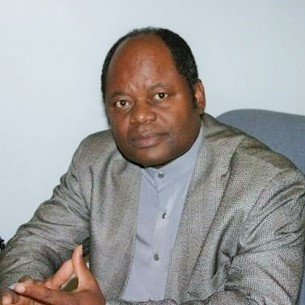A renowned Economist, Prof Ken Ife, says the new tariff regime spearheaded by American President, Donald Trump would put pressure on the Nigerian fiscal and monetary policies.
Ife, who is the Chief Economic Strategist, ECOWAS Commission, said this on Monday in Abuja at the 36th ongoing Finance Correspondents Association of Nigeria (FICAN) Seminar with the theme, “Banking Recapitalisation Towards a One Trillion Dollar Economy”.
He said that in 1993 Nigeria had 89 banks, which reduced to 25 in 2005 after recapitalisation.
“Now we have a much bigger need to recapitalise because we are facing a complete meltdown. This is because of the American tariff regime under President Donald Trump.
“Fiscal policy will be desecrated in a strange way. Monetary policy will be heavily affected. Trade policy, industrial policy, investment policy. Unemployment is going to take a hit, as well as the growth we are talking about.
“That is, the growth that will bring us to a one trillion dollar economy.
“Trump is dreaming about the 1930s when about 80 per cent of America’s revenue was coming from tariffs. Today it is only four per cent. When tariffs are removed, trade expands.
“Trade has expanded for more than 4,000 times since 1945, and America is the greatest beneficiary of the global trading system,” he said.
According to Ife, America is only four per cent of the world population, but controls 13 per cent of world trade.
“About 80 per cent of that are services, not goods. And if you look at America’s Gross Domestic Product (GDP) , only 18 per cent is on industry. 10 per cent is on manufacturing. The rest of it has to do with services.
“About 25 per cent of the world’s GDP is America, 60 per cent of the global debt are denominated in dollars. 59 per cent of global foreign reserves are denominated in dollars, and 84 per cent of global financial transactions are done in dollars,” he said.
He said that America’s grip on the global financial system had come to an end due the emergence of China in the global financial system.
“In 2018, International Monetary Fund (IMF) admitted Chinese Yuan into the basket of currencies after China achieved parity with America, clearing the road for countries to begin to move away from dollar as a control currency,” he said.
He urged the Central Bank of Nigeria (CBN) to rise to the challenge and stabilise Nigeria’s financial system.
He, however, said that prevailing economic challenges would force the government to mount enormous pressure on the apex bank.
“With crude oil price coming down to 60 dollars per barrel, there will be enormous pressure on the CBN as the Federal Government looks for revenue to service external debt,” Ife said.









